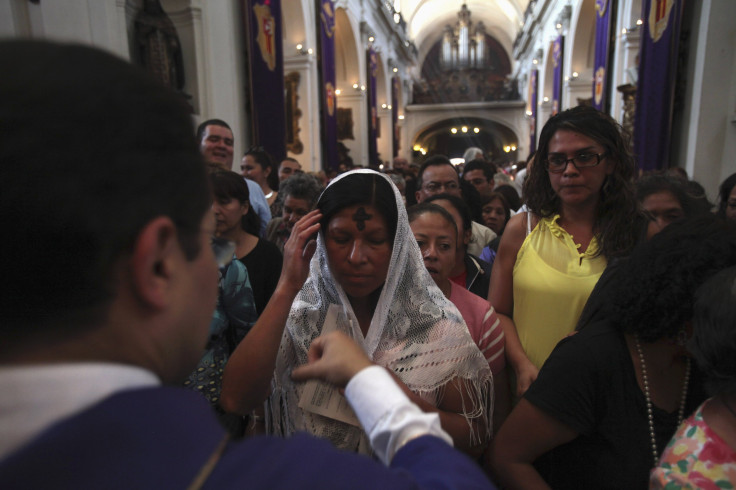'Is Ash Wednesday A Holy Day Of Obligation?' 5 Misconceptions And Facts Of The First Day Of Lent Explained

An earlier version of this story incorrectly stated that Lent ends on Holy Saturday. Lent ends on Holy Thursday. The story has been updated to reflect this.
If you’re wondering why some of the people around you on Wednesday have “dirt” crosses on their heads, it’s because of Ash Wednesday, the day that marks the start of the Lenten season, which lasts until Holy Thursday on April 17. However, the Lenten fast lasts for 40 days until Holy Saturday, not including Sundays.
While Ash Wednesday is an annual rite for Roman Catholics and some other Christian denominations, some misconceptions continue to surround the day that marks the start of Lent. Take a look at some misconceptions and facts behind Ash Wednesday.
Is Ash Wednesday a holy day of obligation?
Among one of the most common misconceptions about Ash Wednesday in the Roman Catholic Church is that Ash Wednesday is a holy day of obligation, a day when Catholics are required to attend Mass.
Can Catholics eat meat on Ash Wednesday?
While the Catholic Church doesn’t require Mass attendance, Ash Wednesday is a day of fasting and abstinence, where Catholics abstain from meat and fast.
An excerpt from the Roman Catholic Code of Canon Law:
“Can. 1251 Abstinence from meat, or from some other food as determined by the Episcopal Conference, is to be observed on all Fridays, unless a solemnity should fall on a Friday. Abstinence and fasting are to be observed on Ash Wednesday and Good Friday.”
Do only Catholics participate in Ash Wednesday?
While many perceive Ash Wednesday to be primarily a day observed by Catholics, other Christian denominations such as Anglicans, Lutherans and Methodists also participate in the day that marks the start of Lent.
Eastern Orthodox Churches do not observe Ash Wednesday. However, they have the Great Lent, which starts on “Clean Monday” for Orthodox churches and ends on Easter, which is April 20 this year. While it’s not a common occurrence, Orthodox Easter falls on the same day as the Catholic Easter holiday this year.
When did the practice of placing ashes on foreheads start?
While Christian Bible refers to the use of ashes in multiple books, the practice of sprinkling ashes can be traced back as early as 960 C.E., with palm branches being burned and used for the ashes starting in the 12th century.
Do you have to give something up for Lent starting on Ash Wednesday?
While it’s encouraged by some Christian denominations to give up something for the duration of Lent, it is by no means an obligation, at least for Catholics. Aside from abstaining from meat on Fridays during lent, and fasting on Ash Wednesday and Good Friday, Catholics are not required or forced to give up anything on Ash Wednesday or the duration of Lent.
© Copyright IBTimes 2025. All rights reserved.






















